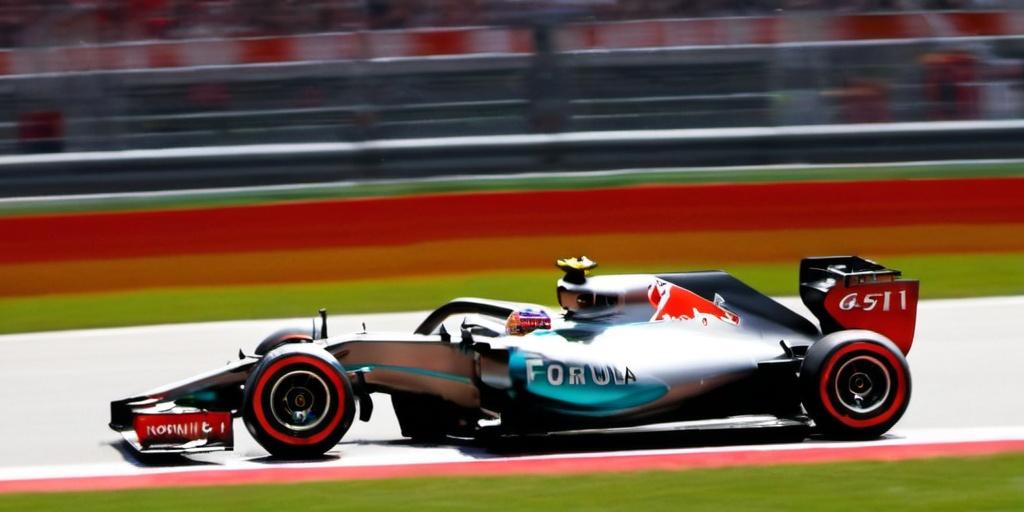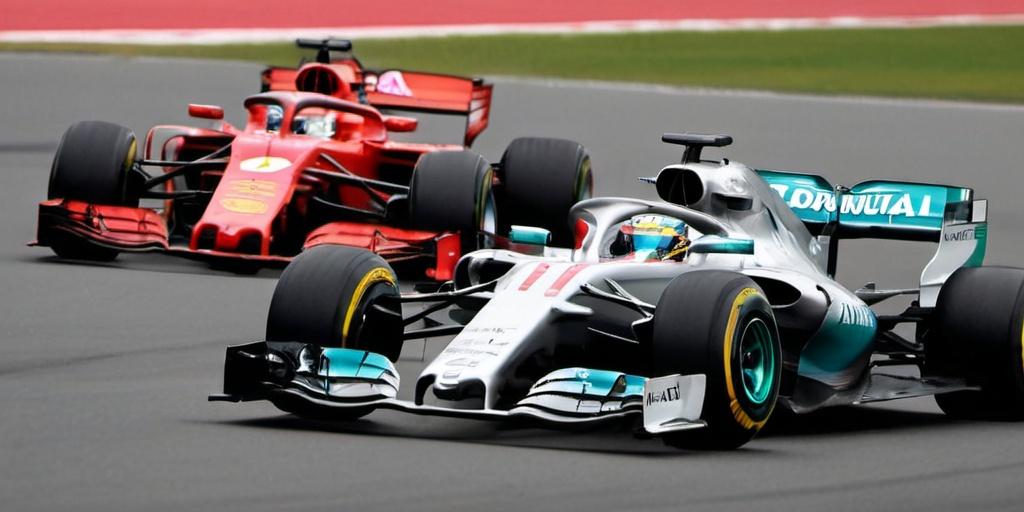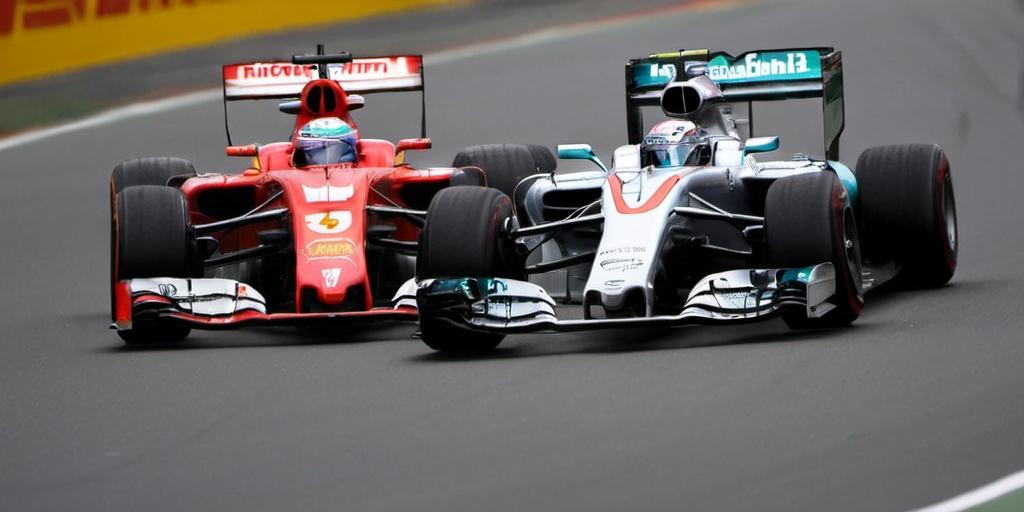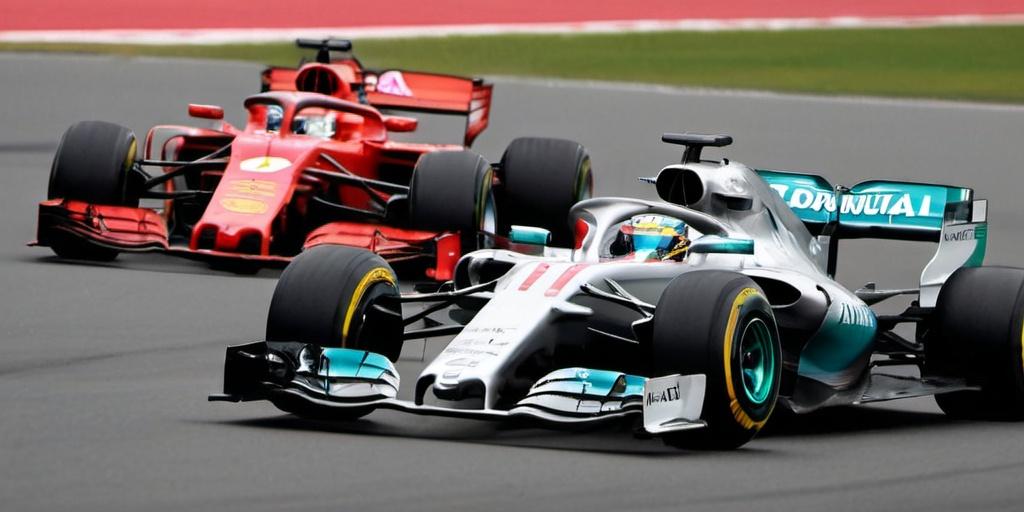Team success in Formula 1 is usually measured in championships, race wins, and longevity. Constructors’ titles, driver titles, total wins, pole positions, and consistency across decades all contribute to the picture. Unlike drivers, who come and go, F1 teams build reputations over time—some through dominance, others through resilience. The most successful team in Formula 1 isn’t a subjective label. It’s one backed by decades of statistics, on-track results, and influence within the sport.
Ferrari: The Longest Standing Name
Ferrari is the only team to have competed in every Formula 1 season since the championship began in 1950. No other constructor has matched that continuity, and no team has collected more total wins or constructors’ titles. As of the current season, Ferrari has over 240 race victories and 16 Constructors’ Championships. They’ve also powered multiple driver titles, with names like Michael Schumacher, Niki Lauda, and Kimi Räikkönen all winning championships in red.
Much of Ferrari’s success came in distinct eras. In the 1950s, they picked up wins early during the post-war rebuilding period. The 1970s under Lauda brought consistency and titles. Then came the most dominant stretch from 2000 to 2004 under Schumacher, Brawn, and Todt—five driver titles and six constructors’ crowns in six years.
But success hasn’t been constant. The team went without a drivers’ title between 1979 and 2000, and again since 2007. Despite that, their total win count, podiums, and ongoing presence on the grid make them statistically the most successful team in Formula 1 history.
Mercedes: Short Span, High Impact
In terms of raw dominance over a short time period, Mercedes stands out. Their run from 2014 to 2021 under the turbo-hybrid engine rules is one of the most dominant stretches in F1 history. In those eight years, they won eight constructors’ titles and helped Lewis Hamilton collect six of his seven driver championships. The car design, led by engineers like James Allison and powered by the consistently strong Mercedes power unit, was rarely matched during that span.
Though the Mercedes name first appeared in the 1950s, the modern team structure only took shape after the purchase of Brawn GP in 2009. That short timeline means Mercedes doesn’t compete with Ferrari on longevity or total starts, but their win percentage and number of titles per year during their dominant run are historically high. In that window, the team won over 100 races and set multiple records for pole positions, fastest laps, and one-two finishes in a season.
McLaren: Innovation and Resilience
McLaren has more than 180 wins and 8 Constructors’ Championships, along with 12 driver titles. The team built its reputation on technical innovation and key driver partnerships. The late 1980s were a peak era, with Alain Prost and Ayrton Senna delivering multiple championships and helping the team dominate during the turbo and early V10 periods.
Even during less successful stretches, McLaren remained competitive. The team has partnered with several engine manufacturers over the decades—Ford, TAG-Porsche, Honda, Mercedes, Renault—adapting its structure repeatedly. Their championship drought since 2008 doesn’t erase earlier success, and their 1998 title with Mika Häkkinen remains one of the last times Ferrari’s dominance was directly challenged before the Schumacher years began.
Red Bull Racing: Modern Efficiency
Red Bull Racing is the most recent team to enter the top tier of success. After purchasing Jaguar Racing in 2005, the team spent a few years building infrastructure before launching a serious title bid. From 2010 to 2013, they won four constructors’ titles and four driver championships with Sebastian Vettel. Then, after a brief slump, they returned to dominance with Max Verstappen in 2021.
Their current run, led by technical chief Adrian Newey and supported by in-house engine work, has mirrored Mercedes’ earlier efficiency. Despite having fewer total seasons than other top teams, Red Bull now sits high in all-time win rankings, closing in on 120 victories. Their conversion rate—wins per entry—is among the highest in the sport.
Williams: Historic Decline After Early Glory
Williams Racing won 9 Constructors’ Championships and 7 driver titles, mostly during the 1980s and 1990s. Powered by strong partnerships with Honda, Renault, and BMW, and known for their innovation in active suspension and aerodynamics, Williams was once the gold standard for independent teams. Drivers like Nigel Mansell, Alain Prost, Damon Hill, and Jacques Villeneuve all won championships with the team.
However, since the early 2000s, Williams has struggled to maintain competitiveness. Lack of manufacturer support, changing ownership, and budget constraints have pushed them to the back of the grid. Still, their historical numbers keep them near the top of the all-time charts.
Consistency vs. Peak Performance
Success in Formula 1 can come in different forms. Ferrari represents consistency—always present, always competing, even if not always winning. Mercedes and Red Bull have demonstrated what peak performance looks like in tightly engineered eras. McLaren and Williams have seen both extremes—periods of clear dominance followed by competitive decline.
The most successful team, by a combination of titles, wins, and years in the sport, remains Ferrari. Even in seasons where they fall short, their car performance, driver lineups, and visibility keep them central to the sport. No team has been more closely associated with the identity of Formula 1 itself.
Success as Evolution
The definition of success in Formula 1 continues to shift with new regulations, calendar expansions, and technology cycles. Teams rise and fall based on budget, engineering decisions, and leadership. As rules change, so do the performance windows, making long-term dominance increasingly rare.
Ferrari’s legacy holds, but Red Bull’s current performance level could challenge their supremacy if sustained. Mercedes’ dominant era is now part of the historical record, and McLaren continues to rebuild with a long-term plan.
Success in F1 is never permanent. It’s constructed season by season, race by race. But as of now, no team matches Ferrari for wins, titles, and longevity. They remain the benchmark, both historically and statistically, and continue to be central to the story of Formula 1.




